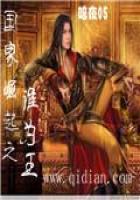"The physical interpreters do not even agree in their physical interpretations". All these are equally facile, equally plausible, and equally incapable of proof. Again, Eusebius argues, the interpreters take for granted in the makers of the myths an amount of physical knowledge which they certainly did not possess. For example, if Leto were only another name for Hera, the character of Zeus would be cleared as far as his amour with Leto is concerned.
Now, the ancient believers in the "physical phenomena theory" of myths made out that Hera, the wife of Zeus, was really the same person under another name as Leto, his mistress. "For Hera is the earth" (they said at other times that Hera was the air), "and Leto is the night; but night is only the shadow of the earth, and therefore Leto is only the shadow of Hera." It was easy, however, to prove that this scientific view of night as the shadow of earth was not likely to be known to myth-makers, who regarded "swift Night" as an actual person. Plutarch, too, had an abstruse theory to explain the legend about the dummy wife,--a log of oak-wood, which Zeus pretended to marry when at variance with Hera.
Pausanias, ix. 31.
This quarrel, he said, was merely the confusion and strife of elements. Zeus was heat, Hera was cold (she had already been explained as earth and air), the dummy wife of oak-wood was a tree that emerged after a flood, and so forth. Of course, there was no evidence that mythopoeic men held Plutarchian theories of heat and cold and the conflict of the elements; besides, as Eusebius pointed out, Hera had already been defined once as an allegory of wedded life, and once as the earth, and again as the air, and it was rather too late to assert that she was also the cold and watery element in the world. As for his own explanation of the myths, Eusebius holds that they descend from a period when men in their lawless barbarism knew no better than to tell such tales. "Ancient folk, in the exceeding savagery of their lives, made no account of God, the universal Creator . . .
but betook them to all manner of abominations. For the laws of decent existence were not yet established, nor was any settled and peaceful state ordained among men, but only a loose and savage fashion of wandering life, while, as beasts irrational, they cared for no more than to fill their bellies, being in a manner without God in the world." Growing a little more civilised, men, according to Eusebius, sought after something divine, which they found in the heavenly bodies. Later, they fell to worshipping living persons, especially "medicine men" and conjurors, and continued to worship them even after their decease, so that Greek temples are really tombs of the dead. Finally, the civilised ancients, with a conservative reluctance to abandon their old myths (Greek text omitted), invented for them moral or physical explanations, like those of Plutarch and others, earlier and later.
Praep. E., ii. 5.
Ibid., 6,19.
As Eusebius, like Clemens of Alexandria, Arnobius, and the other early Christian disputants, had no prejudice in favour of Hellenic mythology, and no sentimental reason for wishing to suppose that the origin of its impurities was pure, he found his way almost to the theory of the irrational element in mythology which we propose to offer.
Even to sketch the history of mythological hypothesis in modern times would require a book to itself. It must suffice here to indicate the various lines which speculation as to mythology has pursued.
All interpretations of myth have been formed in accordance with the ideas prevalent in the time of the interpreters. The early Greek physicists thought that mythopoeic men had been physicists.
Aristotle hints that they were (like himself) political philosophers. Neo-platonists sought in the myths for Neo-platonism; most Christians (unlike Eusebius) either sided with Euhemerus, or found in myth the inventions of devils, or a tarnished and distorted memory of the Biblical revelation.
Met., xi. 8,19.
This was the theory, for example, of good old Jacob Bryant, who saw everywhere memories of the Noachian deluge and proofs of the correctness of Old Testament ethnology.
Bryant, A New System, wherein an Attempt is made to Divest Tradition of Fable, 1774.
Much the same attempt to find the Biblical truth at the bottom of savage and ancient fable has been recently made by the late M.
Lenormant, a Catholic scholar.
Les Origines de l'Histoire d'apres le Bible, 1880-1884.
In the beginning of the present century Germany turned her attention to mythology. As usual, men's ideas were biassed by the general nature of their opinions. In a pious kind of spirit, Friedrich Creuzer sought to find SYMBOLS of some pure, early, and Oriental theosophy in the myths and mysteries of Greece. Certainly the Greeks of the philosophical period explained their own myths as symbols of higher things, but the explanation was an after-thought. The great Lobeck, in his Aglaophamus (1829), brought back common sense, and made it the guide of his vast, his unequalled learning. In a gentler and more genial spirit, C.
Otfried Muller laid the foundation of a truly scientific and historical mythology. Neither of these writers had, like Alfred Maury, much knowledge of the myths and faiths of the lower races, but they often seem on the point of anticipating the ethnological method.
Creuzer, Symbolik und Mythologie, 2d edit., Leipzig, 1836-43.
Introduction to a Scientific System of Mythology, English trans., London, 1844.
Histoire des Religions de la Grece Antique, Paris, 1857.















